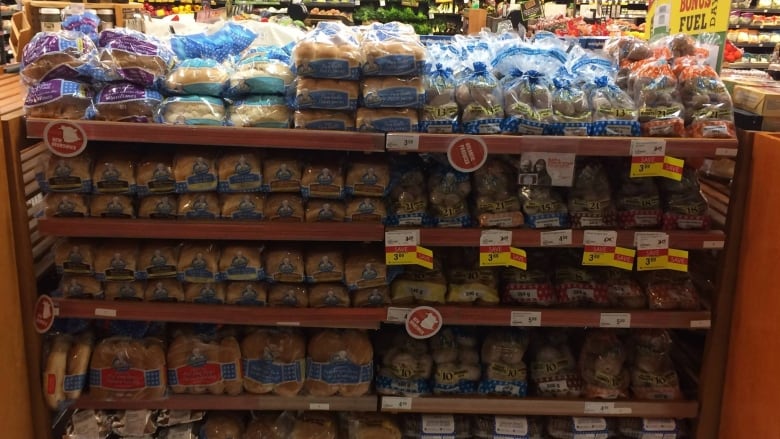Website connects laid-off workers with overburdened food manufacturers
Companies facing increased demand, reduced staff keen for experienced workers

As New Brunswick food manufacturers scramble to keep up with surging demand with reduced staff, a Fredericton company is trying to bridge the gap while helping laid-off employees find work.
The Ginger Agency, a digital marketing firm, has launched foodworksatlantic.ca, a new website that connects food-service workers affected by the outbreak of COVID-19 with companies in need of experienced sets of hands.
"Everybody knows somebody that's been impacted by this, so we're hoping there's a lot of potential good to do here," said Andrew Bedford, the agency's founder and CEO.
The one-page website, a partnership between the company and Sussex bakery Mrs. Dunster's, explains the program and asks interested individuals from Atlantic Canada to fill out a form to be added to a database of workers. Employers can also sign up at the site.
There's no charge to either side.

"We kind of want to set an example, and all the businesses out there that have certain skills that can help, let's all put our heads together and figure out what we can do to help," Bedford said.
The Ginger Agency team — working remotely — quickly created the site late last week. It went live Saturday afternoon, and Bedford said 20 workers and two businesses completed forms on the first day alone.
As of Wednesday afternoon, there were more than 40 jobs to fill.
The food service industry saw widespread layoffs as a result of government restrictions to combat the spread of COVID-19. Restaurants, bars, coffee shops and similar outlets had to limit business to delivery and take-out or close altogether.
At the same time, manufacturers and grocers saw a spike in demand with many consumers keen to stock their cupboards once a state of emergency was declared in the province on March 19.
Manufacturer sent scrambling
Sales at Kredl's Corner Market in Hampton tripled overnight, according to owner Blair Hyslop, who along with his wife, Rosalyn, also own Mrs. Dunster's among other stores and bakeries.
He said it's been a trying time.
They lost about a quarter of their 250 workers. Some employees went home because they or a family member had a compromised immune system, others had to take care of children with daycares closed, and some didn't come in out of fear for their wellbeing, Hyslop said.

The businesses scrambled to set up protective measures, like Plexiglas at the cash and hand-washing stations. They enhanced safety protocols in production, like segregating the commercial kitchen at Kredl's which serves local hospitals and nursing homes.
And then there was the supply of food itself.
Hyslop said Kredl's is a seasonal business that scales back in the winter to align with the regional growing calendar. In a normal year, they would build their production capacity in time for mid to late May.
"Basically, we had to do all that work that would normally take us six to eight weeks to do inside of 48 hours," he said, lauding regional food producers for answering the call to ensure the demand was met.
Hyslop also praised his own team. In one day this week, workers baked 25,000 loaves of bread that were delivered to 600 customers across the three Maritime provinces and Maine. That's up from roughly 2,500 loaves a day.

"We're having to change in every one of [our] locations how we make things and how we pack things and we need to do it in a way that's responsible and safe from a food safety perspective," he said.
"There's nothing in our business that is the same today as it was 10 days ago."
'Why don't we just create a public service campaign'
The idea for foodworksatlantic.ca came from a conversation between Hyslop and Bedford, as the former asked about an online store to arrange deliveries so people, seniors in particular, could stay home.
The site has since been created — Kredl's now delivers within a 50-kilometre radius of its Hampton store — but that conversation shifted into concerns for the "ever-increasingly critical food supply" to hospitals, nursing homes and grocery stores, Bedford said.
"Should they face labour shortages, that could create real issues across the board," he said.
"The conversation led to, well you know if we can use like a digital-lead generation strategy to connect employers and potential employees for one company why don't we just create a public service campaign out of it and open up everybody across the Atlantic Canada."